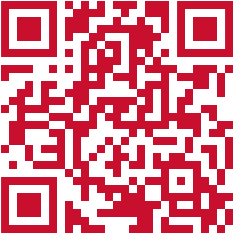Science fairs are an exciting opportunity for students to delve into the world of scientific inquiry. To help you embark on this educational journey, we, on the behalf of Northeastern’s Center for STEM Education, have compiled a list of concise and informative resources that will lead whichever project you pursue to success.

BPS Students presenting at Northeastern’s STEM Fair
If you’re just getting started with your science fair project or are in the initial stages of planning, these websites can be valuable resources to help you kickstart your project.
- Science Buddies
If you’re unsure about what project you’re interested in, Science Buddies is a great way to find out about thousands of projects and topics, each with varying difficulty levels.
Even if you do have an idea in mind, Science Buddies offers the Topic Selection Wizard, which helps find projects tailored to your specific interests and expertise by employing a short questionnaire, which helps make the beginning stage a breeze. - Education.com
Another alternative to using Science Buddies for the beginning stage of your project, Education.com boasts more than 1,000 project ideas with, notably, the ability to sort by grade and popularity. - Khan Academy
Once you’ve found a project that you’re interested in pursuing, it’s time to employ the scientific method. If you aren’t familiar with the scientific method or could use a refresher, the above Khan Academy article has excellent examples with clear explanations to help in your future endeavors.
If you’re past the beginning stage of your project but still in the intermediate stage, you’ll need websites to assist you with the other stages of a science fair, such as conducting experiments, analyzing data, and ultimately presenting your findings. Below are some helpful resources that you can rely on during this stage.
4. PubMed and ResearchGate
If your project involves in-depth research and literature review, websites like PubMed and ResearchGate can help you access scientific papers, articles, and studies relevant to your topic. These resources are especially valuable if you’re working on a more advanced or research-oriented project.
5. YouTube Science Channels
YouTube has numerous science channels that offer experiment demonstrations, data analysis tutorials, and presentation tips. Channels like “Physics Girl,” “Veritasium,” and “Smarter Every Day” often have informative content that can be useful for different stages of your project, making it a reliable resource.
If you’re at the end stage of your project, you’ll want to have a means of expressing your findings. Below are some excellent resources for expressing data clearly, or creating an enjoyable and fascinating presentation.
6. Google Slides, Prezi, Canva, and SlideShare
To create an eye-catching and informative project display or presentation, websites like Prezi, Canva, and SlideShare can be helpful. They offer templates and tips for creating visually appealing presentations that’ll help you get your point across.
7. Online Data Analysis Tools
Depending on the nature of your project, you may need tools for data analysis. Websites like Wolfram Alpha and Desmos provide tools for creating graphs, conducting statistical analyses, and visualizing your data effectively.
In summary, science fair projects are an excellent journey filled with opportunities for learning, discovery, and personal growth. With the resources mentioned, you are well-equipped to navigate every stage, from initial project selection to experimentation and data analysis, all the way to crafting compelling presentations. Cheers to a successful science fair!
Written by Alejandro Baraona on the behalf of Northeastern’s Center for STEM Education

